Kelly Lee Owens – sonic medicine from the former cancer ward nurse
'It was so inspiring; it sounds dramatic but being around death inspired me to live'
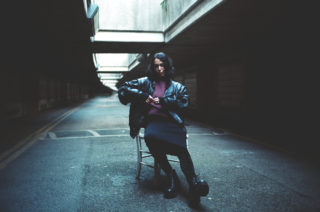
'It was so inspiring; it sounds dramatic but being around death inspired me to live'
‘I can’t see a red curtain’ reads the text as I take a seat beside one. The penny drops. I’m in the wrong place. By a long way. New coordinates are set and I race towards Marylebone to meet Kelly Lee Owens, the enigmatic (but, it turns out, highly efficient) artist behind one of the most talked about debut albums of 2017’s first quarter. On her chosen destination I text back about how ‘dead posh’ it is. ‘It’s dead boring’ is the instant reply. Breathless after our miscommunication, I am glad Kelly took control, which she’s always done remarkably well, it seems.
“I had to get a job back where I grew up in Wales when I was 13,” she tells me. “I think that’s illegal but never mind, I was a waitress, but I was kind of running the show. Maybe I just took over. I remember having anxiety dreams at 14 about running restaurants, which is just weird. My family were saying, Kelly you have to earn your keep. At the time I thought it was unfair, but I think it’s set me up for life.”
She says she finds herself relinquishing control these days, openly admitting that it isn’t her strong point. “I’m so impatient,” she cries, a bundle of positive energy. The wait for her self-titled debut album – an extraordinary techno-tinged, immersive odyssey that’s rich in depth but dance-floor-ready – can’t be easy for her.
To best comprehend this eponymous, complex body of work you must follow Kelly’s journey, which began in Manchester. “That was the first place I felt there was a load of weirdos that I could connect with and feel on a level with in regards to music. I wanted to move away and I had worked in a nursing home before, in Wales, so the next logical step was to do something similar. I worked at Christie’s Cancer Hospital and somehow got a job there,” she says.
“It was so inspiring; it sounds dramatic but being around death inspired me to live and the people I met were so amazing, full of strength. In a way it cuts the bullshit, all the things we overthink in our minds and these situations that we create, you know – it strips all of that away. What always struck me was people would tell me what they would regret and it was always things they didn’t do – I didn’t try…, I didn’t say… – I just couldn’t forget that. It is so simple in a way but if you can just think of yourself towards the end of your life saying that to yourself, what would you regret?
“It really did have a lasting affect on me – music is healing. I think that we need to marry those two worlds and I still think about it a lot.”
When pushed, Kelly reveals that now more than ever her time working for the NHS is informing her current state of mind and her approach to music. “We have more power than we realise to heal ourselves and music for so many people is therapeutic,” she tells me. “When I started doing research into sound frequencies, I found that certain frequencies shatter cancer cells. It’s only specific type of cells and they do need to research it some more but it works.”
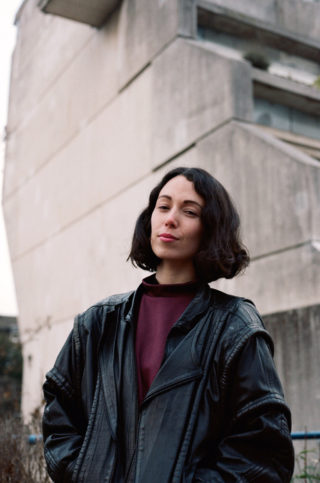
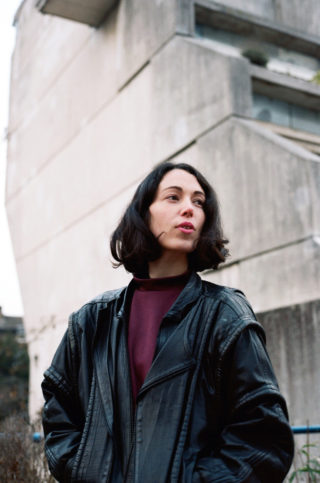
Clearly passionate on the subject, I stop her in her tracks to ask if there is anything she does to enrich her life through musical healing? “Well…” She pauses. “I have been doing gong meditation. It’s the best thing ever. All you do is lie there with a blanket and a pillow, candles, whatever, and then these massive gongs are played subtly. I mean I think of a gong and think, booooooooong.” The fabulous sound she creates comes complete with frantic arm action and another shrill laugh.
Tellingly, there is a ready will to let go that goes hand in hand with Kelly’s newfound hobby. “I am used to controlling sound,” she says, “whereas this is something completely different – someone else is in control and you have to let the sound and vibrations wash over you.”
I ask if it played a part in recording the album, as it’s seemingly a recent interest? “There are two tracks – ‘Evolution’ and the album closer. That was when I was most into the gong sound baths, so in my own analogue way I was trying to combine these worlds. When you finish the album I want you to feel in a slightly immersed state, like, ‘what the fuck did I just listen to?’ Later, Kelly’s aquatic description made perfect sense to me. Slowly sinking back as I listened, the final notes gush out of the speakers.
“I want to explore the relationship between sound and healing, in a way that’s more accessible, not just hippy dippy you know. What about trance music? What about coming into the dance world? What about standing in Berghain and feeling completely connected? I thought maybe I could do something where I am exploring these two worlds of sound and healing. One format would be an exhibition, so I am looking into that at the moment, which will include an immersive sound bath.”
Kelly Lee Owens seems afraid of nothing, and talking to her it makes perfect sense that she’d curate an art exhibition. After all she printed her own vinyl. Working in some of London’s best record stores, including Rough Trade and Pure Groove, made it almost inevitable. “Yeah, two EP’s I pressed and paid for myself,” she nods. “I lost money but I didn’t care; I just thought I need to do this. I have to say, they were great quality – 180 gram, heavyweight, 200 limited, hand signed. Maybe when everything goes to shit I can sell what’s left on eBay.”
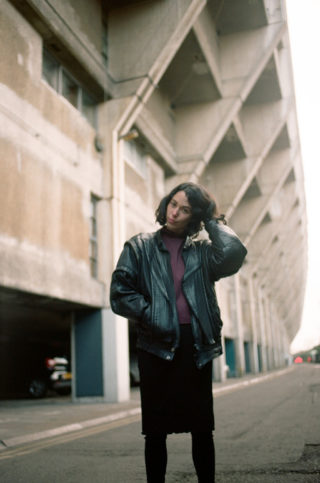
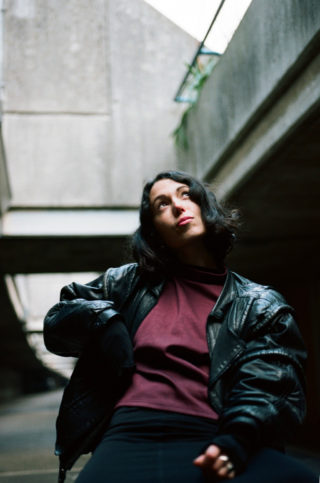
It was behind the counter that Kelly’s tastes took a turn. “It is a funny one,” she tells me. “I was an indie scenester kind of kid playing in bands like The History of Apple Pie. I think working in several record stores opened up my mind to all different kinds of music. Bjork would come into Rough Trade and be like, ‘where is the techno section?’ I’d be thinking why does she like techno? It’s fucking shit. I wasn’t ready for it, didn’t respect it. When Pure Groove was opposite Fabric, my friend Daniel Avery would DJ there. I had dabbled in that world but it was when I started working with Dan and Ghost Culture that I saw the process. It’s only then, when you see the physical process, that you realise it’s a proper thing, it’s not throwaway and it can be emotive.”
As a guest vocalist with a writing credit on Avery’s well-received ‘Drone Logic’, Kelly took valuable time to make notes during recording. “All of the tweaking of the EQ’s on my album, that’s me doing it live, in one take. It’s good to know this stuff; it’s easy just to bypass it but that’s why production is so interesting. I went to see Brian Wilson perform last year and what he did in-between the tracks is talk about how he made it and I completely connected with that. I thought, yes Brian! The songs are genius because of his process and because of the time he took to think about each individual element and bring them together in a way that’s unique.”
‘Kelly Lee Owen’ will be released via Smalltown Supersound, the Norwegian label home to Dungen, amongst others. It was label boss Joakim who introduced Kelly to his compatriot Jenny Hval, the extraordinary avant-folk performance artist who in ‘Blood Bitch’ released my favourite album of last year. Hval guests on Kelly’s lead track ‘Anxi’.
When I mention this there’s much excitement at our table. “Her vocals are perfect for sampling in a track,” says Kelly. “She says such provocative things and she has a great speaking voice. We have a relationship now and we talk a lot. When it came to one of my tracks on the album I was kind of bored of writing my own vocals. I just thought, what am I saying here? I thought the music would be the hard bit but no, it’s the other way around. I instantly thought yes to Jenny – three hours later she sends me pretty much what you hear on ‘Anxi’. Apart from me cutting up some bits and making it quite trippy with vocal production that was it. I wrote back saying, ‘I fucking love you, in three hours this is amazing, you are a genius!’ It’s such a good fit but I am already starting to write the next set of stuff for the second album. Maybe I am a bit impatient… Have I said that before?’